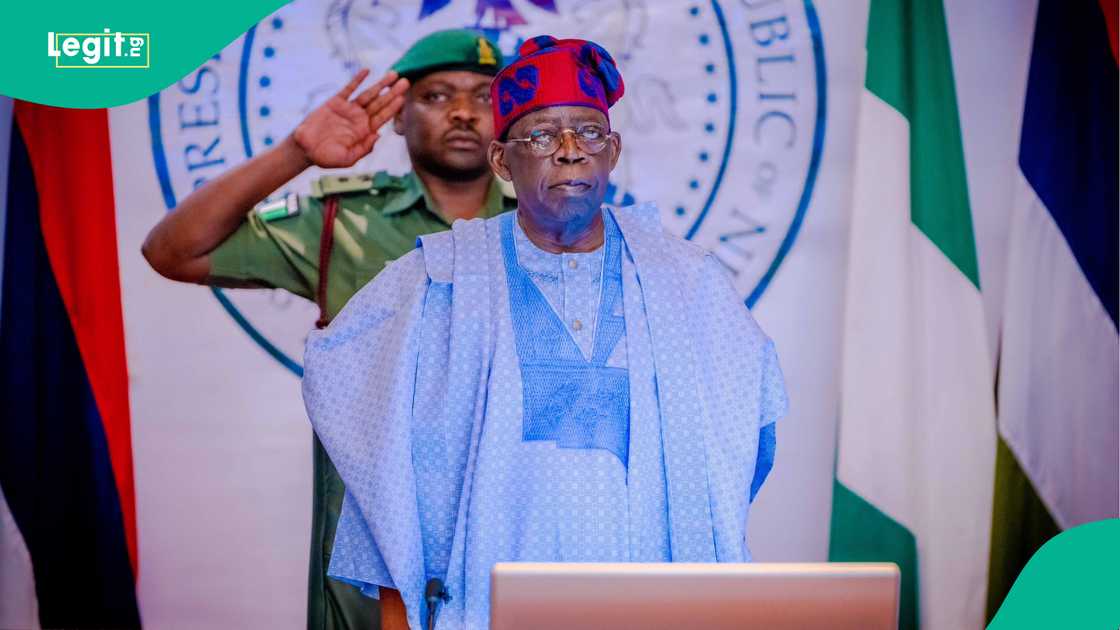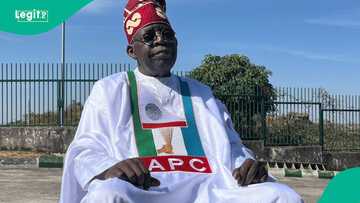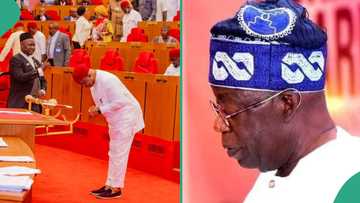"I Only Have Moral Objection": Lawyer Speaks on Tinubu's Pardon List
President Bola Tinubu's proposal to grant the presidential prerogative of mercy for 175 Nigerians in different categories before the Council of State was approved on Thursday, October 9.
It was learnt that the approval came after the Attorney-General of the Federation and Minister of Justice, Lateef Fagbemi, conveyed Tinubu's recommendations, which were based on the report of the advisory committee on the Prerogative of Mercy, during the council meeting at the presidential villa in Abuja.

Source: Twitter
While there are controversies on the list, Tinubu granted pardons to one of the founding fathers of Nigeria, Herbert Macaulay, and former minister of the Federal Capital Territory (FCT) under the regime of Ibrahim Babangida, Maj-Gen. Mamman Vatsa (retd).
Also included in the report are members of the Ogoni Nine and Ogoni Four. One of the controversial cases is Maryam Sanda, who was sentenced to 80 years in prison for the murder of her husband. The president had earlier pardoned her in the list. She was later removed from pardon and given clemency, where her sentencing was reduced to 10 years.
Reacting to the controversies that trailed the list, Binzak Azeez, a legal practitioner, while speaking in an exclusive interview with Legit.ng, said that the president had only exercised his constitutional right and expressed moral concerns about Maryam Sanda's inclusion in the list.
His statement reads:
"The president has only exercised his constitutional power. Indisputably, Section 175 of the 1999 Constitution (as amended) empowers the president to grant a pardon or commute a sentence for offences created by an Act of the National Assembly. The president has acted within the ambit of the constitution, aside from the legal controversy on the grounds of Herbert Macaulay's pardon.
"Though it has been raised by some legal analysts that the president doesn't have the power to pardon Herbert Macaulay, who was tried and convicted under the colonial laws as opposed to an enactment of the National Assembly.
"By extension, I feel the president's action was legally right. Herbert Macaulay was once tried and convicted under an English law, the Seditious Offences Ordinance of 1909. And the law falls under the Statutes of General Application, which have long been incorporated into the Nigerian legal system.
"I only have a moral objection to the pardon of Maryam Sanda, who deliberately murdered her husband. She stabbed her husband several times while asleep. I don't think the people who are convicted of capital offences of this nature should be pardoned so as to protect the sanctity of life."
Source: Legit.ng





